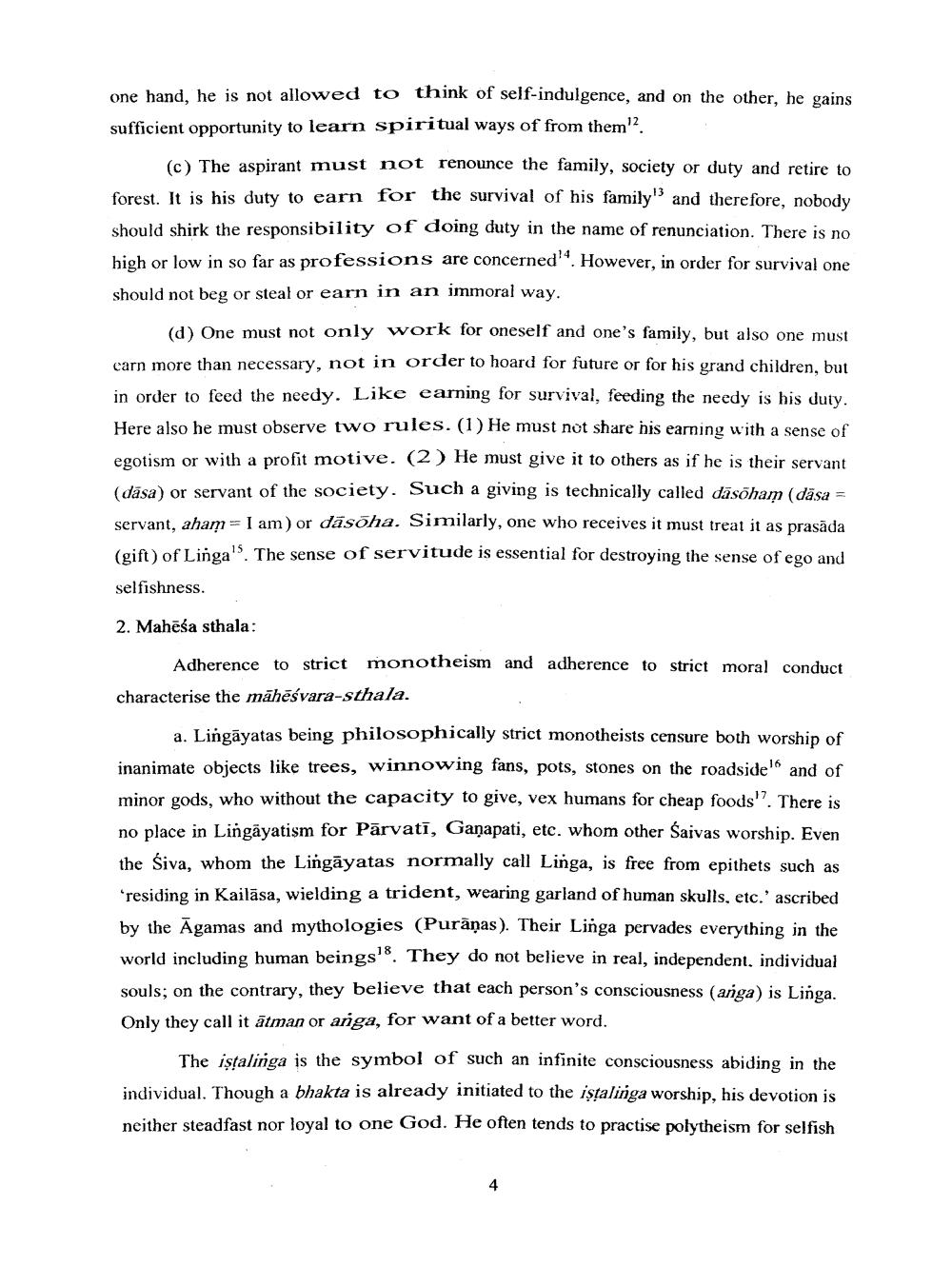________________
one hand, he is not allowed to think of self-indulgence, and on the other, he gains sufficient opportunity to learn spiritual ways of from them".
(c) The aspirant must not renounce the family, society or duty and retire to forest. It is his duty to earn for the survival of his family' and therefore, nobody should shirk the responsibility of doing duty in the name of renunciation. There is no high or low in so far as professions are concerned1. However, in order for survival one should not beg or steal or earn in an immoral way.
(d) One must not only work for oneself and one's family, but also one must carn more than necessary, not in order to hoard for future or for his grand children, but in order to feed the needy. Like earning for survival, feeding the needy is his duty. Here also he must observe two rules. (1) He must not share his earning with a sense of egotism or with a profit motive. (2) He must give it to others as if he is their servant (dása) or servant of the society. Such a giving is technically called dasham (disa servant, aham = I am) or dāsōha. Similarly, one who receives it must treat it as prasāda (gift) of Linga's. The sense of servitude is essential for destroying the sense of ego and
selfishness.
2. Mahesa sthala:
Adherence to strict monotheism and adherence to strict moral conduct characterise the maheśvara-sthala.
a. Lingayatas being philosophically strict monotheists censure both worship of inanimate objects like trees, winnowing fans, pots, stones on the roadside"" and of minor gods, who without the capacity to give, vex humans for cheap foods". There is no place in Lingayatism for Pārvati, Ganapati, etc. whom other Saivas worship. Even the Siva, whom the Lingayatas normally call Linga, is free from epithets such as "residing in Kailasa, wielding a trident, wearing garland of human skulls, etc.' ascribed by the Agamas and mythologies (Puranas). Their Linga pervades everything in the world including human beings". They do not believe in real, independent, individual souls; on the contrary, they believe that each person's consciousness (anga) is Linga. Only they call it atman or anga, for want of a better word.
The istalinga is the symbol of such an infinite consciousness abiding in the individual. Though a bhakta is already initiated to the istalinga worship, his devotion is neither steadfast nor loyal to one God. He often tends to practise polytheism for selfish
4




